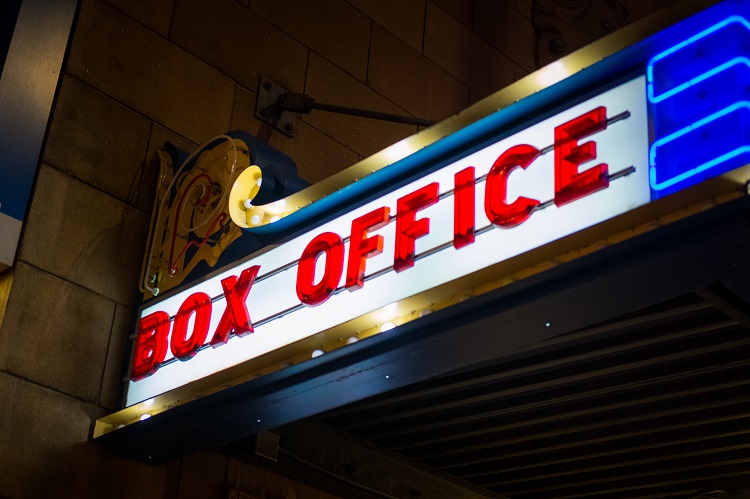It’s like a page straight out of “1984,” sales of which have skyrocketed of late. The Internal Revenue Service recently admitted to targeting groups whose politics appear to differ with that of the administration, forcing them to complete burdensome tasks, and requesting personal information about staff, donors and volunteers. The Department of Justice secretly seized two months of records on Associated Press reporters and editors, effectively rendering useless the all-important firewall of protection around news sources. Now we have learned that millions of law-abiding citizens who have used Facebook, made a phone call, sent an email or any number of other common activities, have had their information sent to the federal government for analysis. The “PRISM” program has been ongoing and expanding dramatically since 2007. The debate over whether or not these are “scandals” cuts across party lines and has highlighted one of the rifts within Republican ranks. Many who have championed rolling back the size of government nonetheless support intrusive surveillance activities for the sake of security. One cannot help but wonder how far a nation must go to protect its citizens. Random searches and video cameras installed in homes would certainly improve safety, if that is the ultimate goal. As Professor James Otteson of Yeshiva University discusses in this Learn Liberty video, there’s a tradeoff between liberty and security, and security comes at a price—he suggests it’s a price that’s even greater than just the liberty we give up for increased security. It is one thing to exercise constitutionally questionable war powers in a time of crisis, leaving history to judge afterward. But to create new facilities, institutions and operations for an ongoing breach of public privacy is neither temporary nor targeted—it is policing through a widespread breach of privacy. Such an infrastructure is difficult to ratchet down once it is set in motion, and will likely follow other federal programs in finding new pathways for continuous expansion long after its original purpose has faded from memory. In a previous post, I wrote on George Orwell’s “Animal Farm” and Friedrich Hayek’s “The Road to Serfdom.” Both books warned against investing too much power in the state, as today’s philosopher king can quickly become tomorrow’s tyrant. Even if we were certain that our leaders shared our precise interests, the tools of power remain after they are gone, and are easily hijacked. This fact leads to perhaps the greatest argument for classical liberalism: big government tends to create more problems than it solves. The larger a government becomes, the less likely it is to achieve its aims, but the more likely it becomes to both disrupt beneficial private activity and become an instrument of corruption. What is meant by “big government” and why is it plagued with inefficiencies and corruption? Bigness in government is more than largess; it is a combination of philosophy and operation that views the state as the protector of all evil and provider of all goods. It is ineffective, in part, because it is burdened by committees, weakened with compromises and muddled by thousands of mark-ups by members, staffers and agency regulators. But the more fundamental problem is the sheer lack of information necessary for centralized planning to work. This was the true insight Hayek brought to economics and politics. We like to think of the world with clean lines and patterns that we can analyze, understand and predict. But real life is constantly changing with each second and with each person. Society as an organism is never the same, moment to moment. It is quite awe-inspiring to consider how quickly information and technology evolve in a society in which people are free to communicate and innovate. There are 314 million people in the United States. Each one has to decide what to eat, what to purchase, what to drive, and so forth, taking into consideration a unique set of needs and factors that either no one else—or just a small number of family members or friends—might understand. Layers of complexity are added when we consider intangible resources such as time, talents, emotions and countless other things that we experience, which are embedded in the millions of tiny decisions we make every day. The “spontaneous order” produced by capitalism is simply the processing power of each individual part, observing the signals around them, making these calculations regarding their own needs, and returning that signal to the market. Intellectual elites cannot anticipate the needs of society, no matter how many peer-reviewed journals have published their models. No supercomputer will ever be able to process such a quantity and complexity of information, since computers cannot think, feel and judge as humans—it means something to be human, after all. Politics is fundamentally about decision-making. While we still sing that America is “the land of the free,” more and more decisions about the way we live and work are being centralized to a 10 square-mile district on the Potomac River. Washington is making decisions for the rural farmer in South Dakota, the entrepreneur in Arizona, the single mother in Tennessee and the soup kitchen worker in Texas. But do the committee members in Congress or agency regulators under the president understand what any of these people need today, or how they should prepare for tomorrow? By definition, we expect our political representatives to understand our needs, and they are happy to go through the motions. But what our states, cities, communities and families truly need is the freedom to make our own decisions. That is self-government, and that is what our forefathers defended. Once we’ve lost sight of it, we’ve abandoned every reason why our old sacred rights shouldn’t be subject to the whim of political impulse.
July 23, 2013


